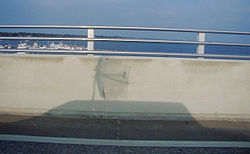On the Beowulf list there has been a long thread on GPGPU and especially nVidia’s CUDA language. As part of it Prentice Bisbal posted about a friend of his, Mario Juric, who decided to write a proof of concept MD5 password hashing program to take advantage of CUDA.
In his message to the Beowulf list Prentice quoted Mario saying:
If you attempt to compute a single hash on an entire card, you won’t get any improvement. Same as you wouldn’t if you tried it on a single vs. quad core CPU. But if you compute four hashes, than single vs. quad makes a huge difference. And the GPU cards are effectively 128 core CPUs, so when you need to compute millions of hashes…
Now Mario Juric (who organised the AstroGPU workshop) has put up a web page on the program, which gives details of the sort of performance he got with a quick hack.
One way of visualizing this is noting that a single 8800 Ultra could brute-force break an MD5 hashed password of eight or less characters+numbers (A-Z, a-z, 0-9) in about ~16 days.
But this really is just a quick hack:
The MD5 code used here was written in less than 2 days, as a proof-of-concept, and with only a single one-liner GPU-specific optimization.
Of course if people do want to try playing with it the program is available, though at the moment there isn’t a software license included with it. I’ve emailed Mario about the license to see if he can clarify what the rules are.
